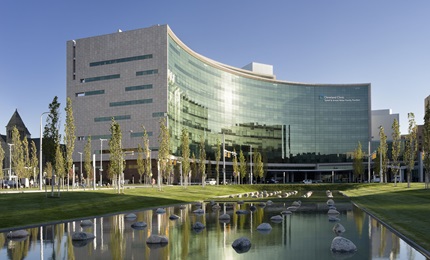Scott Raymond, MD

Primary Location
Cleveland Clinic Main Campus
- Appointment:
- 216.444.0500
- Desk:
- 216.636.5860
- Fax:
- 216.636.2061
Additional Locations
Cerebrovascular Center
Mentor Medical Office Building
7060 Wayside Drive
Mentor, OH 44060
Directions
- Appointment:
- 216.444.0500
- Desk:
- 216.636.5860
- Fax:
- 216.636.2061
Cerebrovascular Center
Hillcrest Hospital
6770 Mayfield Road
Mayfield Heights, OH 44124
Directions
- Appointment:
- 216.444.0500
- Desk:
- 216.636.5860
- Fax:
- 216.636.2061
Biomedical Engineering
Cleveland Clinic Main Campus
9500 Euclid Avenue
Cleveland, OH 44195
Directions
- Appointment:
- 216.445.8649
- Desk:
- 216.445.8649
- Fax:
- 216.636.2061
Imaging
Cleveland Clinic Main Campus
9500 Euclid Avenue
Cleveland, OH 44195
Directions
- Appointment:
- 216.444.0500
- Desk:
- 216.444.1084
- Fax:
- 216.444.3943
Treatment & Services
- Aneurysm Coiling
- Angioplasty
- Embolization of Cerebral Aneurysms
- Endovascular Surgery
- Preoperative Embolization of Tumor
- Sclerotherapy
- Spinal Angiography
Specialty in Diseases & Conditions
- Acute Ischemic Stroke
- Brain Hemorrhage
- Carotid Artery Disease
- Carotid Bruit
- Carotid Cavernous Fistula
- Cerebral Aneurysm
- Cerebrospinal Fluid (CSF) Venous Fistula
- Cerebrovascular Occlusive Disease
- Dural Arteriovenous Fistula
- Extracranial Carotid Artery Aneurysms
- Idiopathic Intracranial Hypertension
- Intracranial Stenosis
- Moyamoya Disease
- Pseudotumor Cerebri
- Pulsatile Tinnitus
- Spinal Dural Fistula
- Spinal Vascular Malformation
- Subdural Hematoma
- Vertebrobasilar Insufficiency
Insurance
Is Cleveland Clinic Part of Your Insurance?
Review a list of accepted insurance plans for our Northeast Ohio locations or learn more about purchasing a contracted managed care plan.
View All PlansAbout Scott Raymond, MD
Education & Professional Highlights
Appointed
2024
Education & Fellowships
Fellowship - Massachusetts General Hospital
Interventional Neuroradiology and Endovascular Neurosurgery
Boston,
MA United States
2019
Fellowship - Massachusetts General Hospital
Neuroradiology
Boston,
MA United States
2018
Residency - Massachusetts General Hospital
Diagnostic Radiology
Boston,
MA United States
2017
Internship - Caritas Carney Hospital
Transitional Year
Dorchester,
MA
2013
Medical Education - Harvard Medical School
Boston,
MA
2012
Graduate School - Harvard University
Biophysics
Cambridge,
MA United States
2010
Undergraduate - Brigham Young University
Applied Physics, Neuroscience
Provo,
UT
2004
Certifications
- Radiology - Diagnostic Radiology
- Radiology - Neuroradiology
Research & Publications
See publications for Scott Raymond, MD.
(Disclaimer: This search is powered by PubMed, a service of the U.S. National Library of Medicine. PubMed is a third-party website with no affiliation with Cleveland Clinic.)
Industry Relationships
Cleveland Clinic physicians and scientists may collaborate with the pharmaceutical or medical device industries to help develop medical breakthroughs or provide medical expertise or education. Cleveland Clinic strives to make scientific advances that will benefit patient care and support outside relationships that promise public benefit. In order for the discoveries of Cleveland Clinic physicians' and scientists' laboratories and investigations to benefit the public, these discoveries must be commercialized in partnership with industry. As experts in their fields, Cleveland Clinic physicians and scientists are often sought after by industry to consult, provide expertise and education.
To assure professional and commercial integrity in such matters, Cleveland Clinic maintains a program that reviews these collaborations and, when appropriate, puts measures in place to minimize bias that may result from ties to industry. Cleveland Clinic publicly discloses the names of companies when (i) its physicians/scientists receive $5,000 or more per year (or, in rare cases, equity or stock options) for speaking and consulting, (ii) its physicians/scientists serve as a fiduciary, (iii) its physicians/scientists receive or have the right to receive royalties or (iv) its physicians/ scientists hold any equity interest for the physician's/scientist's role as inventor, discoverer, developer, founder or consultant.* In publicly disclosing this information, Cleveland Clinic tries to provide information as accurately as possible about its physicians' and scientists' connections with industry.
As of 8/15/2024, Dr. Raymond has reported no financial relationship with industry that is applicable to this listing. In general, patients should feel free to contact their doctor about any of the relationships and how the relationships are overseen by Cleveland Clinic. To learn more about Cleveland Clinic's policies on collaborations with industry and innovation management, go to our Integrity in Innovation page.
Public Health Service-Reportable Financial Conflicts of Interest. Cleveland Clinic scientists and physicians engage in basic, translational and clinical research activities, working to solve health problems, enhance patient care and improve quality of life for patients. Interactions with industry are essential to bringing the researchers' discoveries to the public, but can present the potential for conflicts of interest related to their research activities. Click here to view a listing of instances where Cleveland Clinic has identified a Public Health Service (PHS)-Reportable Financial Conflict of Interest and has put measures in place to ensure that, to the extent possible, the design, conduct and reporting of the research is free from bias.
* Cleveland Clinic physicians and scientists subscribe to the guidance presented in the PhRMA Code on Interactions with Healthcare Professionals and the AdvaMed Code of Ethics on Interactions with Health Care Professionals. As such, gifts of substantial value are generally prohibited.